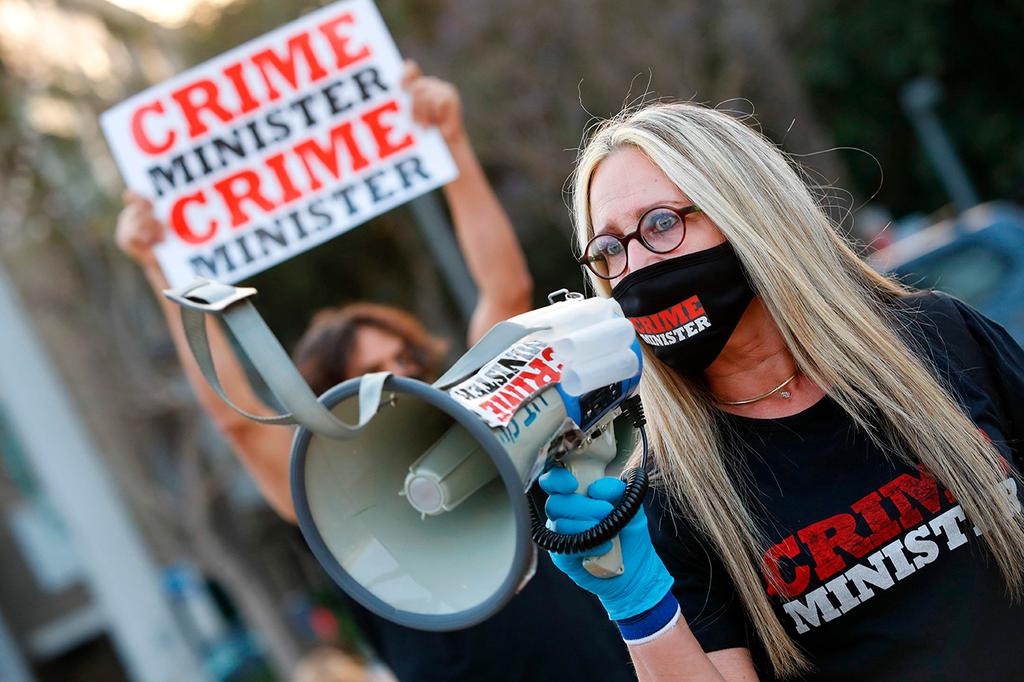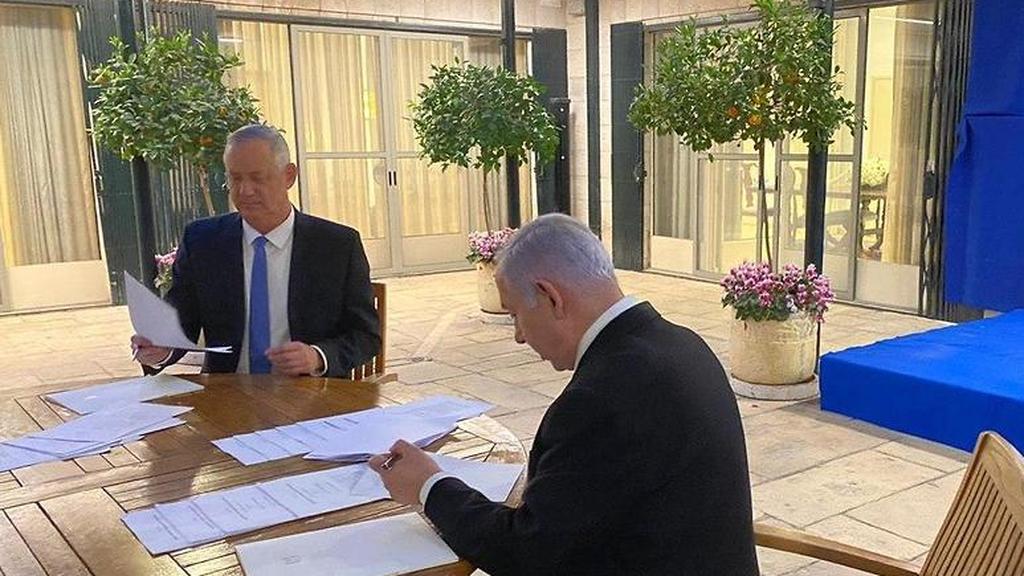The coalition agreement reached between Prime Minister Benjamin Netanyahu's Likud party and Blue & White led by Benny Gantz poses many questions and legal challenges including on matters of appointments to positions such as the attorney general, state prosecutor and Israel Police commissioner.
The agreement also defines a new status for an acting prime minister, whose position under the agreement grants him a status similar to that of the premier and includes an official residence in Jerusalem.
Three petitions asking the High Court to issue injunctions against the agreement have already been filed by civil rights organizations and opponents of the deal.
So, can a person who is under criminal indictment serve as prime minister?
This is the main question and the first to be brought before the court.
The coalition agreement stipulates that Netanyahu will serve as prime minister for 18 months, at which point he will vacate his seat and assume the role of acting prime minister, allowing Benny Gantz to take his place.
Under Israeli law, a prime minister may remain in the job while criminal proceedings against them are being deliberated in the courts and until a final verdict is reached, including all levels of appeal.
A motion filed at the High Court by Daphne Holtz, representing a group of high-tech entrepreneurs, is seeking a ruling that a member of Knesset under indictment for a crime of moral turpitude be barred from standing for the top position.
Should Netanyahu be blocked from maintaining his position as prime minister for any reason, the coalition agreement stipulates the parties will jointly move to hold new national elections.
Prof. Suzie Navot, an expert in constitutional law at the College of Management Academic Studies said that asking the court to decide "is problematic and contradicts the principle of separation of powers and the independence of the judiciary because it burdens the High Court with the responsibility of the possible consequences of its ruling."
She added: "The High Court has in the past few years weighed in when the government actions were detrimental to the work of the Knesset… When Yuli Edelstein refused to remove himself from the position of Knesset speaker [in March], the court intervened to protect the parliamentary majority that was seeking to replace him.
"I think there is a need to intervene now to protect the Knesset from an item in the agreement that blocks a representative of the opposition from participating in judicial appointments, which is in contradiction to an earlier ruling of the court," she said.
Another problematic item in the agreement stipulates that there will be no legislation that is not directly relevant to the coronavirus pandemic for a period of six months.
"The government must not interfere in the work of the Knesset by blocking legislation," she said. "Passing laws is the purview of the Knesset and at least 40 opposition MKs cannot be prevented from legislating."
The coalition agreement allows each side to veto appointments for senior law enforcement and judicial positions.
The government will have to appoint a new police commissioner, attorney general, and state prosecutor at a time when an indicted prime minister would have a vested interest in these appointments.
The attorney general, for example, could be asked to decide a future plea deal for Netanyahu and the state prosecutor would be involved in Netanyahu's legal proceedings.
Even the new police commissioner may interfere in any future investigations into Netanyahu's conduct.
"There is a perceived conflict of interest," Navot said. "Netanyahu's consent will be required when deciding who will fill these positions."
3 View gallery


Israelis protest the new government agreement at a rally in Tel Aviv this week
(Photo: AFP)
Both parties to the coalition agreement agreed that the government's codes and objectives will be defined after it has been sworn in and be based on the proposals of a dedicated committee. This requires the Knesset - in contradiction to Basic Law: The Government - to approve a government that has neither defined goals nor codes.
According to Navot, the parties could avoid this situation by drafting a document outlining their proposed codes and goals.
Navot also said that the two-headed government specified in the coalition agreement means the basic law will have to be changed, a move that should be held up to public scrutiny.
"According to the existing law, an acting prime minister has the same status as any other government minister, but the agreement signed by Gantz and Netanyahu gives the acting prime minister a different status that is equal to the prime minister - and such a radical change to a basic law cannot be rushed through the legislative process without public discussion and consideration."



